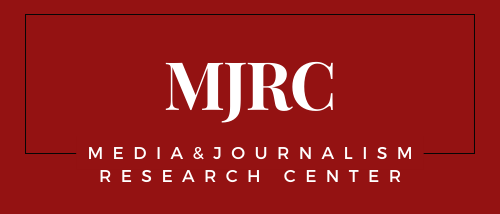Yijing Chen

Yijing Chen, a PhD candidate at the Department of Network and Data Science, at the Central European University, has joined our fellowship program. Her research centers around online political communication, social media, and social networks. With her background in Information Science, she is currently investigating the role of social media in political polarization, applying network analytics and natural language processing to measure polarization and understand structural patterns. She’s a curious reader in the broad field of computational social science and is interested in bridging perspectives and fostering collaborations across disciplines.
Her ongoing PhD project collects and analyzes self-donated digital traces from multiple social networking sites (e.g., Facebook, Instagram), combined with self-reported questionnaire responses from a nationally representative sample in Hungary. By considering both attitudes and behaviors, she assesses and compares the degree of polarization reflected in people’s self-perceived ideological positions and digital traits online.
See below more information about Yijing’s project conducted as an MJRC fellow.
Deliberative democracy calls for efficient political communication that meaningfully engages the public in discussions of key issues. Social networking sites (SNS), by allowing distant users to form online social networks and participate in discussions, have provided citizens with “greater inclusion and access to public decision-making”[1], thus serving as crucial communication channels for authentic political deliberation. However, the technological optimism about social media’s potential to promote civic engagement and build a larger common ground does not encompass the full magnitude of social media’s impact on political communication, as we see problems such as toxic conversations and filter bubbles arising in recent years. To realize the prospective merits of a hyper-connected society, we need to consistently reflect upon our online political conversations and carefully assess whether and how the architecture of today’s cyberspace alters with whom and about what we communicate.
Recent decades have seen alarming signals of an increasingly polarized population that diverges toward more extreme positions with shrinking tolerance for out-group members[2], [3]. Among researchers and the general public, one major concern that has garnered significant attention is that social media may exacerbate political polarization by delivering ideologically congruent news feeds and siloing users into homophilic communities[4],[5] . Despite substantial research efforts, this field is still rapidly evolving and presents numerous intriguing gaps, including (i) that the theoretical conceptualization of polarization has not been fully integrated into today’s model simulations or SNS data-driven analysis, and (ii) that the net impact of SNS usage on polarization remains an open debate. These gaps motivate a more systematic breakdown of the problem itself, a more unifying language that aligns frameworks from different disciplines, and more thoughtful experiment designs to uncover the nuances in the causal chain.
[1] Rishel, N. M. Digitizing deliberation: Normative concerns for the use of social media in deliberative democracy. Administrative Theory & Praxis 33, 411–432 (2011).
[2] Mason, L. Uncivil agreement: How politics became our identity (University of Chicago Press, 2018).
[3] Webster, S. W., Connors, E. C. & Sinclair, B. The social consequences of political anger. The Journal of Politics 84, 1292–1305 (2022).
[4] Bail, C. A. et al. Exposure to opposing views on social media can increase political polarization. Proceedings of the National Academy of Sciences 115, 9216–9221 (2018).
[5] Levy, R. Social media, news consumption, and polarization: Evidence from a field experiment. American economic review 111, 831–870 (2021).
Invest in independent media research and join a community of practice.
Your contribution supports MJRC’s investigations and global analysis. As a supporter, you can receive early access to new findings, invitations to small-group briefings, inclusion in our Supporters Circle updates, and the option to be listed on our Supporters Page.
Contribute to MJRC